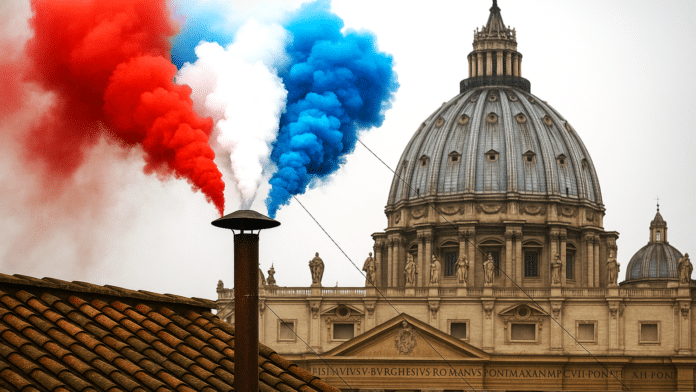May 9, 2025
In a moment destined for history books, white smoke billowed above St. Peter’s Square Wednesday evening, signaling to the world that a new pope had been chosen. The Catholic Church’s 267th pontiff is none other than Cardinal Robert Francis Prevost—an American. Taking the name Pope Leo XIV, the Chicago-born cleric becomes the first American ever to hold the papacy.
The announcement came after two days and four rounds of voting by the 133 cardinal-electors gathered in conclave inside the Sistine Chapel. Crowds erupted into cheers as Cardinal Dominique Mamberti stepped onto the balcony of St. Peter’s Basilica to declare, “Habemus Papam”—“We have a pope.”
Pope Leo XIV, 69, brings an international résumé to the Holy See. Though born in the U.S., he spent more than 20 years as a missionary and bishop in Peru. In 2023, he was tapped by Pope Francis to head the powerful Dicastery for Bishops, one of the Vatican’s most influential roles. His dual citizenship and bilingual fluency have already shaped expectations that his papacy will carry a global voice.
In his first address as pope, Leo XIV greeted the faithful with, “Peace be with all of you!” before paying tribute to his predecessor Pope Francis, and committing to continue the Church’s mission of “compassion, justice, and unity.”
The name Leo is historically significant. Pope Leo XIII, whom many believe Prevost is honoring, is known for championing workers’ rights and penning the 1891 encyclical Rerum Novarum, laying the foundation for modern Catholic social teaching. Analysts see the name as a signal: Pope Leo XIV intends to walk a path of both moral clarity and modern reform.
Notably, his election has stirred conversation in both religious and political circles. As the first pope born in the United States, his papacy may reshape the global Church’s relationship with the Western Hemisphere, long viewed as the next frontier for Catholicism’s demographic shift.
Pope Leo XIV’s election also comes amid worldwide challenges to faith and trust in institutions—religious or otherwise. His track record as a pastoral, reform-minded figure suggests the Church may continue to emphasize social justice, decentralization of power, and inclusion of the global South.
For now, the bells of St. Peter’s ring out in joy. The world turns to watch what this American pope will bring to a Church at the crossroads.





